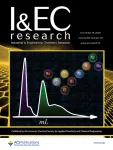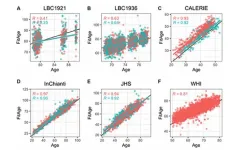(Press-News.org) The myriad ways in which we use social media can be grouped into four broad categories, each of which is associated with a cluster of specific personality and behavioral traits, suggests new research from Washington University in St. Louis.
“Social media is here to stay, so clarifying how people use social media and raising awareness of these findings are crucial first steps toward ultimately helping people understand how they can avoid the negative aspects of social networking and engage in healthier social media usage,” said Alison B. Tuck, first author of the study and a PhD candidate in clinical psychology in Arts & Sciences.
The study, published online May 25 in the journal Assessment, offers a new empirically tested model for understanding how our use of social media is associated with a complex web of social desires and emotional concerns.
Known as the “Social Media Use Scale,” the Washington University model is a response to a large body of research that has produced inconsistent and often conflicting findings regarding social media use’s influences on psychological well-being.
“Because of these inconsistent findings, experts have been advocating for research to examine social media use in a more nuanced way. We conducted a series of research studies to figure out what its structure may look like,” said co-author Renee J. Thompson, an associate professor of psychological and brain sciences and director of the Emotion and Mental Health Lab.
Their scale assesses the frequency with which people engage in each of the four types of social media use.
The belief-based category captures social media activities that express and reinforce negative opinions. This category of use is associated with traits related to poorer psychological well-being, greater depression and an urge to seek emotionally upsetting content. Belief-based users may have poor self-control and might avoid boredom by engaging in drama.
Consumption-based use, which is using social media primarily to consume entertaining content, is related to scoring higher on traits associated with greater emotional well-being, including greater self-esteem and extraversion and less depression. Consumption-based use is associated with more enjoyment from social media and seeking content that makes one happy.
Image-based social media use focuses on activities that help users create a positive social image, such as making positive posts about oneself or tracking total likes or comments on a post. This category of social media use is associated with a desire to put oneself on display and engage in activities that prop up one’s sense of self-worth and integrity.
Comparison-based use focuses on activities that involve comparing oneself with others or with an idealized version of one’s past. These activities are associated with a host of negative outcomes, including lower social and emotional well-being, concerns over physical appearance and fear of negative evaluation.
Most studies on social media and health have based findings on simple measures of frequency of use or on varying definitions of passive versus active behavior — simple “lurking” on social media compared with posting, commenting and social interaction.
In developing their scale, Tuck and Thompson tested various models of social media, including the active vs. passive model, and found these categories did a relatively poor job of explaining how college students engaged with these platforms.
The researchers set out to develop a more fine-grained scale based on a series of studies in which university students ages 18-23 years were asked to describe their social media activities.
In the first study, 176 students were asked to spend three minutes using their choice of social media and then provide an open-ended description of their activities and enjoyment.
“This is the first study to create a social media scale based on an open-ended response format, which is important because it allows participants to describe their social media use without being confined to predefined categories, such as ‘passive’ or ‘active,’” Tuck said.
In the second and third studies, both of which involved more than 300 college students, researchers asked participants to indicate how often they engaged in social media activities identified in the first study.
Participants also completed a battery of online surveys commonly used to score individuals on personality traits (extraversion, open-mindedness, conscientiousness, agreeableness and negative emotionality) and behavioral characteristics (fear of negative evaluation, self-esteem, depression, social physique anxiety, need for approval, need for drama, boredom susceptibility, exhibition narcissism and emotion regulation).
Using factor analysis, a statistical technique that helps reveal common patterns in large data sets, researchers identified four social media usage categories: belief-based, consumption-based, image-based and comparison-based. Each category is uniquely related to specific personality and behavioral traits.
The scale can be used to analyze behaviors on any social media platform that allows individuals to create profiles, connect with other users and view lists of connected users, such as Facebook, Twitter, Snapchat, Reddit, Instagram and TikTok.
By providing a consistent method for measuring well-defined behaviors across platforms, the scale may help researchers pinpoint factors that contributed to mixed results in past studies.
The current study has revealed important distinctions between image-based and comparison-based social media usage and their connection to depression.
“Our data suggest that these types of uses are distinct constructs, each associated with its own set of unique traits,” Tuck said.
Tuck and Thompson, both in clinical psychology, contend that it is important to continue investigating the different types of social media use.
“Social media use is not all good or all bad for mental health,” Thompson said. “Our research is helping clarify the ways that these types of use are associated with well-being. With our current and future studies, we aim to inform healthy social media use recommendations.”
“This new scale allows us to carve social media at its joints in more nuanced ways that will help all of us start to better understand what is healthy versus unhealthy social media use,” Tuck said.
END
What your likes, posts really say about you
Researchers create tool to evaluate social media use
2023-06-07
ELSE PRESS RELEASES FROM THIS DATE:
Scientists develop inorganic resins for generating and purifying radium and actinium
2023-06-07
The Science
Targeted alpha therapy can destroy cancerous cells without harming healthy cells. It’s especially useful for treating metastasized cancers. The Department of Energy (DOE) Office of Science’s Isotope Program is developing and marketing novel radioactive isotopes for targeted alpha therapy. One method of making one isotope, actinium-225, involves bombarding radium targets with neutrons. This method poses a challenge: how to chemically separate the radium from the actinium. This can destroy typical separation equipment due to a radioactive process called alpha decay. Now, researchers ...
New research: Maybe crying in baseball is a good thing?
2023-06-07
ITHACA, N.Y. – Venturing out of one’s comfort zone to perform a task – and then performing poorly in that task, such as a baseball pitcher trying to hit – can lead to better performance when returning to one’s specialty, according to new research.
Brittany Bond, an assistant professor of organizational behavior in the Cornell School of Industrial and Labor Relations, and Ethan J. Poskanzer of the University of Colorado argue that this phenomenon occurs through a process they call “forced task inferiority,” in which underperformance in tasks outside their specialty frustrates ...
Electronic health records can contain bias, potentially impacting clinical trials
2023-06-07
Results of clinical trials are only as good as the data upon which they rest. This is especially true in terms of diversity — if most people in a trial are from a certain race or socioeconomic group, then the results may not be broadly applicable.
This form of potential bias is not a novel concept. But a group of researchers at the University of Illinois Chicago and colleagues have identified a potential hidden source of bias: electronic health records.
In a recent Contemporary Clinical ...
Yale-led study shows ‘significant overall survival benefit’ when lung-cancer drug is taken after surgery
2023-06-07
New Haven, Conn. — A clinical trial led by Yale Cancer Center shows that the drug osimertinib, a targeted therapy for non-small cell lung cancer, improved rates of survival and reduced risk of recurrence in patients after surgery.
The results, published June 4 in the New England Journal of Medicine, were presented this week by Dr. Roy Herbst, deputy director of Yale Cancer Center and principal investigator of the ADAURA Phase III clinical trial, during the 2023 annual meeting of the American Society of Clinical Oncology. Herbst is also assistant dean for translational research, ensign professor of medicine (medical oncology), ...
Temptation at the checkout: 70% of food, drinks within arm’s reach are unhealthy
2023-06-07
We’ve all been there: waiting in line at a store checkout, surrounded by tempting snacks and drinks. Navigating the checkout lane in search of healthy options could be a challenge, according to researchers at the University of California, Davis, who found that 70% of foods and beverages at checkout are unhealthy.
For snack-sized options, an even higher proportion were unhealthy — 89%.
A study published this month in the journal Current Developments in Nutrition suggests most food and beverage options at checkout consist of candy (31%), sugar-sweetened beverages (11%), salty snacks (9%) and sweets (6%).
Healthy ...
Devastating heart condition can be reversed, study shows for the first time
2023-06-07
Three men who had heart failure caused by the build-up of sticky, toxic proteins are now free of symptoms after their condition spontaneously reversed in an unprecedented case described by a team at UCL (University College London) and the Royal Free Hospital.
The condition, a form of amyloidosis affecting the heart, is progressive and has until now been seen as irreversible, with half of patients dying within four years of diagnosis.
The new study, published as a letter in The New England Journal of Medicine, reports ...
DNAmFitAge: Biological age indicator incorporating physical fitness
2023-06-07
“We expect DNAmFitAge will be a useful biomarker for quantifying fitness benefits at an epigenetic level and can be used to evaluate exercise-based interventions.”
BUFFALO, NY- June 7, 2023 – A new research paper was published in Aging (listed by MEDLINE/PubMed as "Aging (Albany NY)" and "Aging-US" by Web of Science) Volume 15, Issue 10, entitled, “DNAmFitAge: biological age indicator incorporating physical fitness.”
Physical fitness is a well-known correlate of health and the aging ...
Now is already too late – The European and international endocrine community calls for immediate action on chemicals legislation is the only way forward to address Endocrine Disrupting Chemicals
2023-06-07
Brussels, Belgium 7 June 2023 – The call for action reverberated across the halls of the European Parliament as a diverse group of scientists, policy makers and interest organisations gathered in a packed room, to discuss how to address the gaps between science and legislation and "Shape an ambitious legislative framework for endocrine disruptors."
“Through such meetings with experts, we as policy makers can obtain valuable insight into the latest available science and benefit from it in our legislative ...
Trouble falling asleep, staying asleep linked to increased risk of stroke
2023-06-07
MINNEAPOLIS – People who have insomnia symptoms such as trouble falling asleep, staying asleep and waking up too early, may be more likely to have a stroke, according to a study published in the June 7, 2023, online issue of Neurology®, the medical journal of the American Academy of Neurology. In addition, researchers found the risk was much higher in people under 50 years old. The study does not prove that insomnia symptoms cause stroke; it only shows an association.
“There are many therapies that can help people improve the quality of their sleep, so determining which sleep ...
Seizures while driving and why it’s important to diagnose epilepsy ASAP
2023-06-07
MINNEAPOLIS – Prior to being diagnosed with epilepsy, 5% of people with a type of epilepsy called focal epilepsy had a seizure while driving, according to a new study published in the June 7, 2023, online issue of Neurology®, the medical journal of the American Academy of Neurology.
Focal epilepsy accounts for more than half of all cases of epilepsy. People with this form of epilepsy have recurring seizures that affect one half of the brain.
“Seizures while driving pose substantial risks for those experiencing them and for others ...
LAST 30 PRESS RELEASES:
Why does chronic back pain make everyday sounds feel harsher? Brain imaging study points to a treatable cause
Video messaging effectiveness depends on quality of streaming experience, research shows
Introducing the “bloom” cycle, or why plants are not stupid
The Lancet Oncology: Breast cancer remains the most common cancer among women worldwide, with annual cases expected to reach over 3.5 million by 2050
Improve education and transitional support for autistic people to prevent death by suicide, say experts
GLP-1 drugs like Ozempic could cut risk of major heart complications after heart attack, study finds
Study finds Earth may have twice as many vertebrate species as previously thought
NYU Langone orthopedic surgeons present latest clinical findings and research at AAOS 2026
New journal highlights how artificial intelligence can help solve global environmental crises
Study identifies three diverging global AI pathways shaping the future of technology and governance
Machine learning advances non targeted detection of environmental pollutants
ACP advises all adults 75 or older get a protein subunit RSV vaccine
New study finds earliest evidence of big land predators hunting plant-eaters
Newer groundwater associated with higher risk of Parkinson’s disease
New study identifies growth hormone receptor as possible target to improve lung cancer treatment
Routine helps children adjust to school, but harsh parenting may undo benefits
IEEE honors Pitt’s Fang Peng with medal in power engineering
SwRI and the NPSS Consortium release new version of NPSS® software with improved functionality
Study identifies molecular cause of taste loss after COVID
Accounting for soil saturation enhances atmospheric river flood warnings
The research that got sick veterans treatment
Study finds that on-demand wage access boosts savings and financial engagement for low-wage workers
Antarctica has lost 10 times the size of Greater Los Angeles in ice over 30 years
Scared of spiders? The real horror story is a world without them
New study moves nanomedicine one step closer to better and safer drug delivery
Illinois team tests the costs, benefits of agrivoltaics across the Midwest
Highly stable self-rectifying memristor arrays: Enabling reliable neuromorphic computing via multi-state regulation
Composite superionic electrolytes for pressure-less solid-state batteries achieved by continuously perpendicularly aligned 2D pathways
Exploring why some people may prefer alcohol over other rewards
How expectations about artificial sweeteners may affect their taste
[Press-News.org] What your likes, posts really say about youResearchers create tool to evaluate social media use


